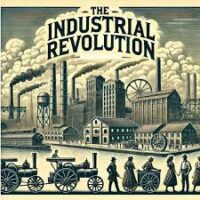Contents
There are some major events that changed world history. These events are unforgettable even if centuries have passed. The agricultural revolution is such a revolution, where humanity came from nomadic communities and settled on the land, and cultivated the land to produce food to feed itself. Historians thought that the most important movement in world history at that time was the agricultural revolution firstly. Then, steam power would change many things in England after the middle of the 18th century. In this context, historians state that the greatest revolution in history is the industrial revolution.
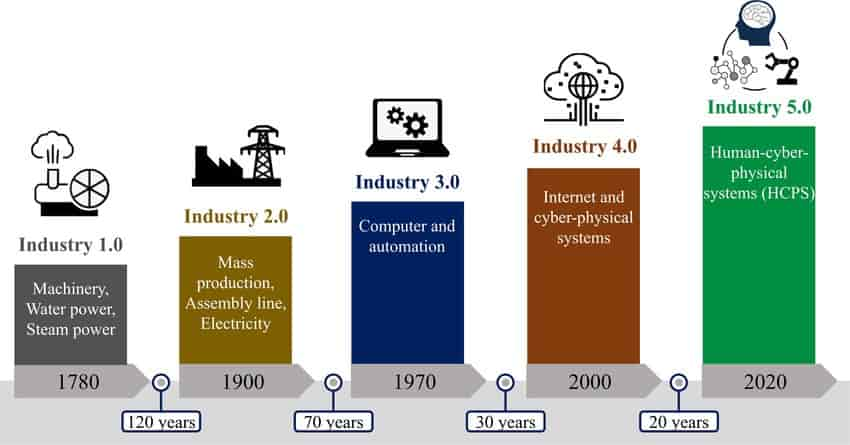
The invention of the steam engine started a major movement that would perhaps even trigger technology and artificial intelligence revolutions such as OpenAI that extend to the present day. This process has almost completely transformed human history. It started in Britain, first spread to Europe and then to the entire world. In this context, it should be noted that in this period, also known as the industrial revolution, everything from economy to production methods, from social and family life to political administrations has changed completely.
If we are talking about the concepts of liberal democracy, Industry 4.0, capitalism, communism or imperialism today, it is necessary to look for the foundation and roots of these ideologies or worldviews in the concept of the industrial revolution. At this point, we will first analyse the reasons and then the stages and their effects on today with their results and try to make a projection into the future. Let’s not forget that this process brought innovations to humanity, but also brought with it many pains, tears and deaths, as described in the famous book The Grapes of Wrath.
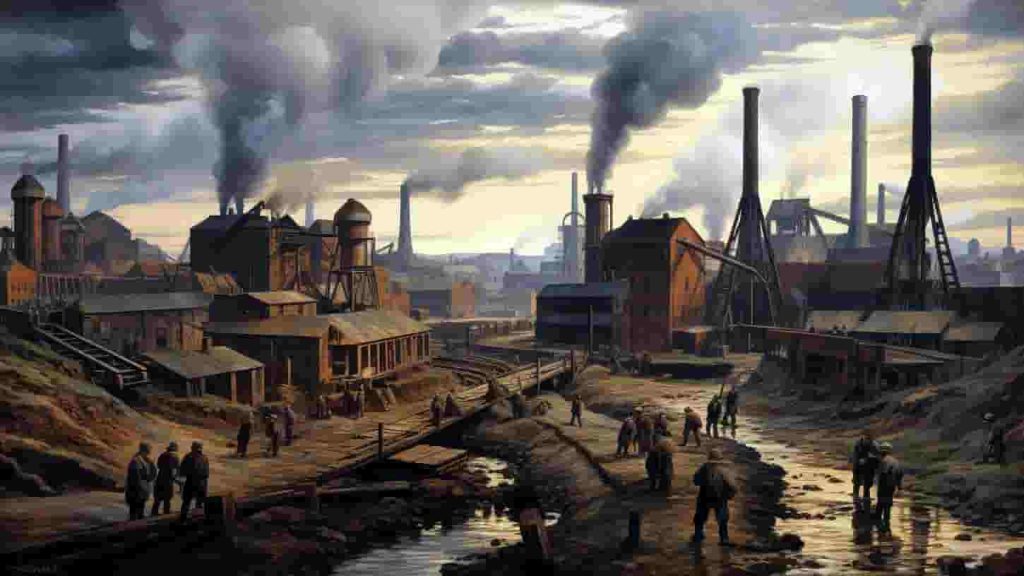
What Was the Industrial Revolution? Why Started in England?
The people who transitioned from a nomadic hunter-gatherer society to a settled society were introduced to the concept of land and property. As the famous historian Noah Harari explains in detail in his book Sapiens, these masses, which eventually transformed into an agricultural society, began to produce more food with the development of agricultural technologies. Increasing food and production also brought about an increase in population. Farmers could now feed more people and did not suffer from expanding their families. In addition, more children meant more people who would work in the fields and farms and support their families.
The discovery of steam power, the increase in weaving looms and innovations in iron and steel production that began during this period also brought about the footsteps of the industrial revolution. It was during this period that Adam Smith and the views we call classical economists emerged, and capitalism, they almost formed the philosophy of the that revolution.
So, why did the Industrial Revolution emerge in England? In other words, why did such a big movement emerge in Britain, and not in France or China, for example, during the same period? Historians cannot give a common and agreed answer to this question. However, some reasons can be listed.
Here are the reasons why the Industrial Revolution started in England:
- -England was in a flexible and democratic monarchy environment that came from the Magna Carta of 1215,
- Trade and commercial experience were already developed,
- There was a free trade environment that supported innovation,
- The logistics and transportation infrastructure was sufficient thanks to the canal systems,
- It had rich coal and iron deposits, i.e. raw materials
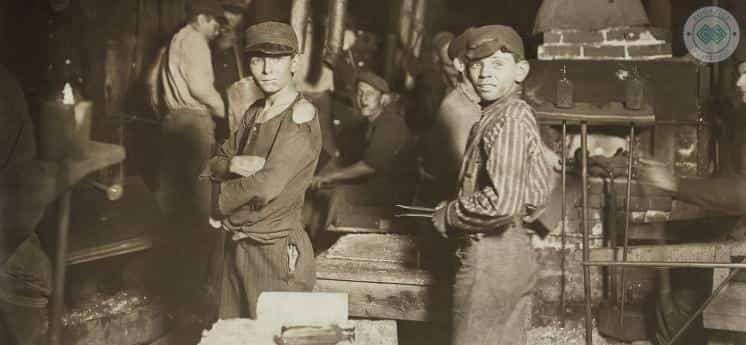
The Capitalist Philosophy Impact
In addition, the capitalist philosophy and world of thought that started in the world during this period also triggered the acceleration and spread of this revolution. With the increasing spread of capitalist thought and production with steam engines, markets expanded and colonial activities began.
At this point, it became very critical to reach cheap raw materials and to find virgin markets for the excess supply that emerged with increasing production. At this point, the stages of the revolution gain importance with the beginning. Before moving on to the stages, it should be noted that; if we analyse world political history well, we see that the French Revolution and the American War of Independence were also in periods close to this movement, and even triggered each other. However, the industrial revolution, like other revolutions, did not occur on a specific day or date.
Economic Impacts: From Agriculture to Industry
In this direction, we should easily state that this phenomenon, also called Industry 1.0, took place by spreading over certain periods. 18th-century innovations are very important in this period. Urbanization and factories brought social impacts with them.
Especially due to some of the features we have listed above, this movement started in England and quickly spread in waves and gained a revolutionary quality all over the world.
• First Industrial Revolution: This process, which started in the 1760s, is actually considered the beginning of the revolution in the classical sense. At this stage, production slowly began to shift from labour and human power to machinery and capital. Communities engaged in agriculture began to become workers, and craftsmen and guilds engaged in manual production began to suffer losses and lose their competitive power during this period. During this period, the population growth rate increased strongly along with the increase in food and production.
• Second Industrial Revolution: This is the name of the process that continued from the 1870s to 1915 and is also called the technological revolution. In this step, internal combustion engines, the inclusion of electricity in mass production and the new and cheap steel production method developed by Henry Bessemer from England emerged. The 2nd Period is the stage where economies of scale, mass intensive production and heavy industry come to the forefront. In this context, mechanization increased, the weight of the agricultural sector decreased and workers’ cities began to emerge. Technological advancements were very crucial in this stage.
In a short time, countries such as France, Belgium, Italy and America, which had come out of the civil war at that time, adopted these rapid growth movements and started to industrialize rapidly. This rapid increase in industrial production and growth brought with it serious competition. At this very stage, the question “Could the Cause of the World Wars” be the industrial revolution and profit ambition brought with it?
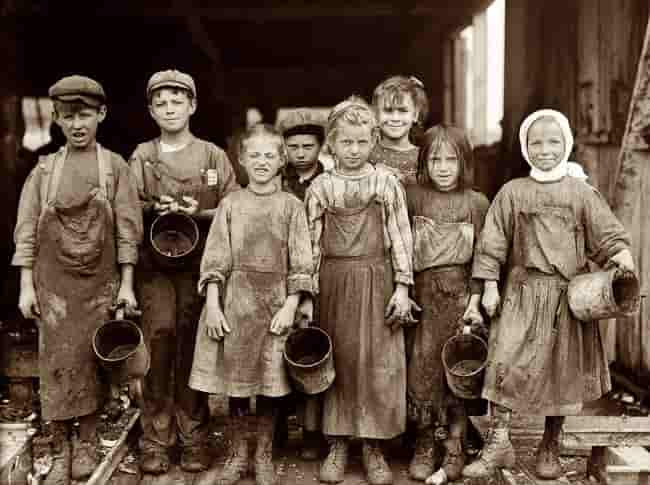
Results and Spread of Industrialization: A Global Phenomenon
The Industrial Revolution, which is considered the most important event that changed the course of world and human history, naturally produced very great results. The most important of these results is the change in the shape of human life. Accordingly, the person who was the direct producer in the agricultural society started to participate in production as labour in the industrial society and became a paid worker.
On the other hand, as historians insistently state, another most important result is that urbanization emerged with the working class, and capitalism emerged with the bourgeois and capitalist classes. In other words, the working class has now given birth to the urbanization process and migrated from their lands to big cities. In addition, this process naturally caused movements such as communism and socialism, and it has also been a great ideological trigger.
Ultimately, even the Russian October Revolution of 1917 is a result of this process. In addition, it should be noted that the industrial revolution, together with the working class, unfortunately introduced the concept of women and child labour into our lives. While hundreds of thousands of people died or were disabled in factories during that period, women and child workers were unfortunately among them. It should be noted at this point that movements such as socialism were born as a natural result of these inhumane working conditions. In addition to all this, the need for raw materials and markets along with increased production also brought about colonialism and imperialism movements.
It is also obvious that the aggressive attitudes of Germany, which joined this race later and newly established its unity, caused two major wars worldwide and these caused the deaths of nearly a hundred million people. In this context, we recommend that you also examine the Treaty of Versailles.
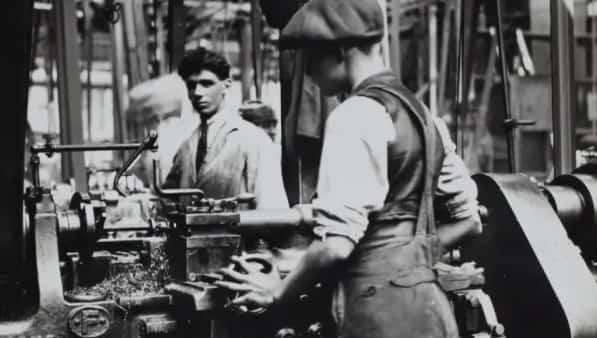
Social Changes Brought by the Industrial Revolution
If we list the social and economic results of the Industrial Revolution in items:
- Transition from agricultural society to urbanization and urban society.
- The emergence of a new class under the name of the worker class,
- Triggering movements such as capitalism, communism and imperialism,
- Causing the search for raw materials and markets that would lead to world wars,
- Initiating female and child labour, Increasing importance of scientific thought,
- Environmental pollution and damage to the ecological balance of the world.
The Impact of the Industrial Revolution on the Environment
Today, the climate crisis and the changing seasons or the migrant crisis, which can be considered as related to this, are quite popular topics on the world agenda. In this context, if we consider that even the subjects of generative AI and Industry 4.0 are connected to the Industrial Revolution, it will be possible for us to understand the impact of this movement on the environment and human history. The greatest damage of this process, which started with steam power and went to artificial intelligence and rocket launches with the influence of Elon Musk, has been to the climate crisis and natural balance along with the human spirit.
Today, we have left very irreversible damages in this regard. Yes, thanks to the industrial revolution and technological inventions, all of humanity has made significant progress. On the other hand, with excessive profit ambition and constant growth motivation, the limits have been pushed and exceeded.
At the point we have reached, development and the progress of humanity have become an unstoppable process. In fact, if you read Homo Deus by Harari, it will not be difficult to see that there is a greater development area ahead of humanity, which is expected to walk towards semi-divinity with future biotechnological developments. The most important issue here is the size of the cost of this progress and developments.
In this context, it should finally be noted that; it is still possible to grow by making a profit in the modern world within concepts such as the Paris Climate Agreement without giving up on industrialization and technology. As long as social consensus, nature and an economic system focused on people are acted upon.
